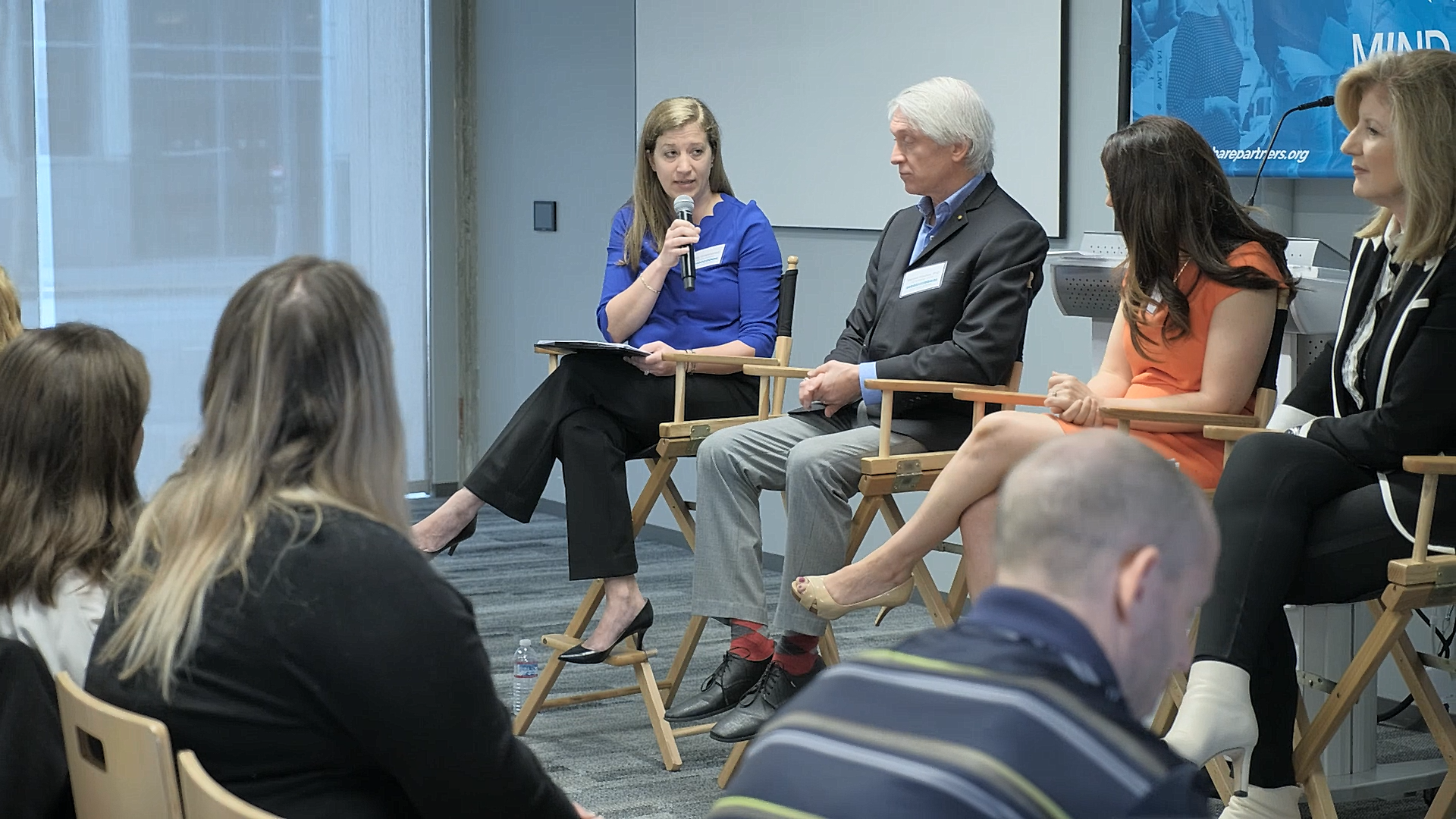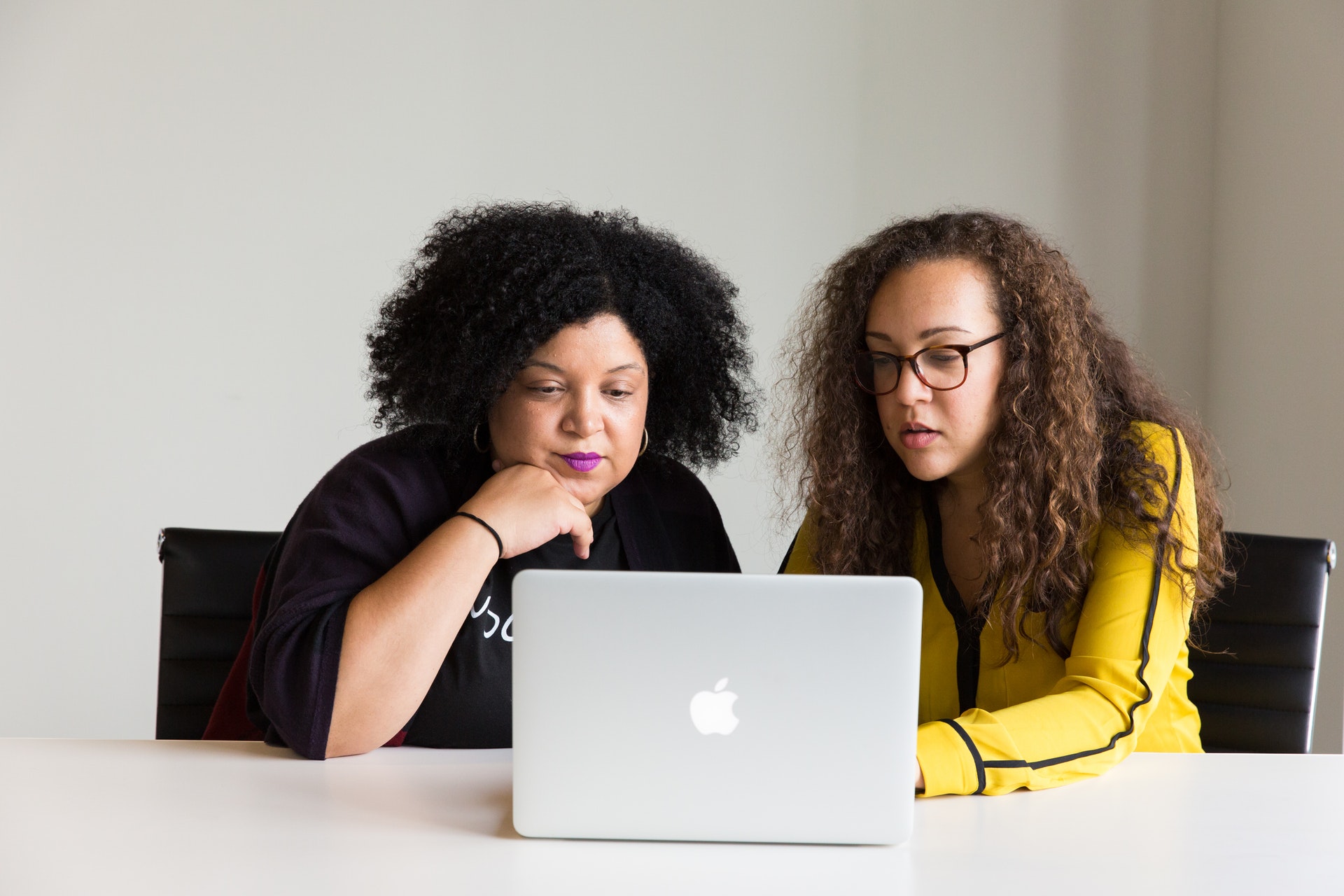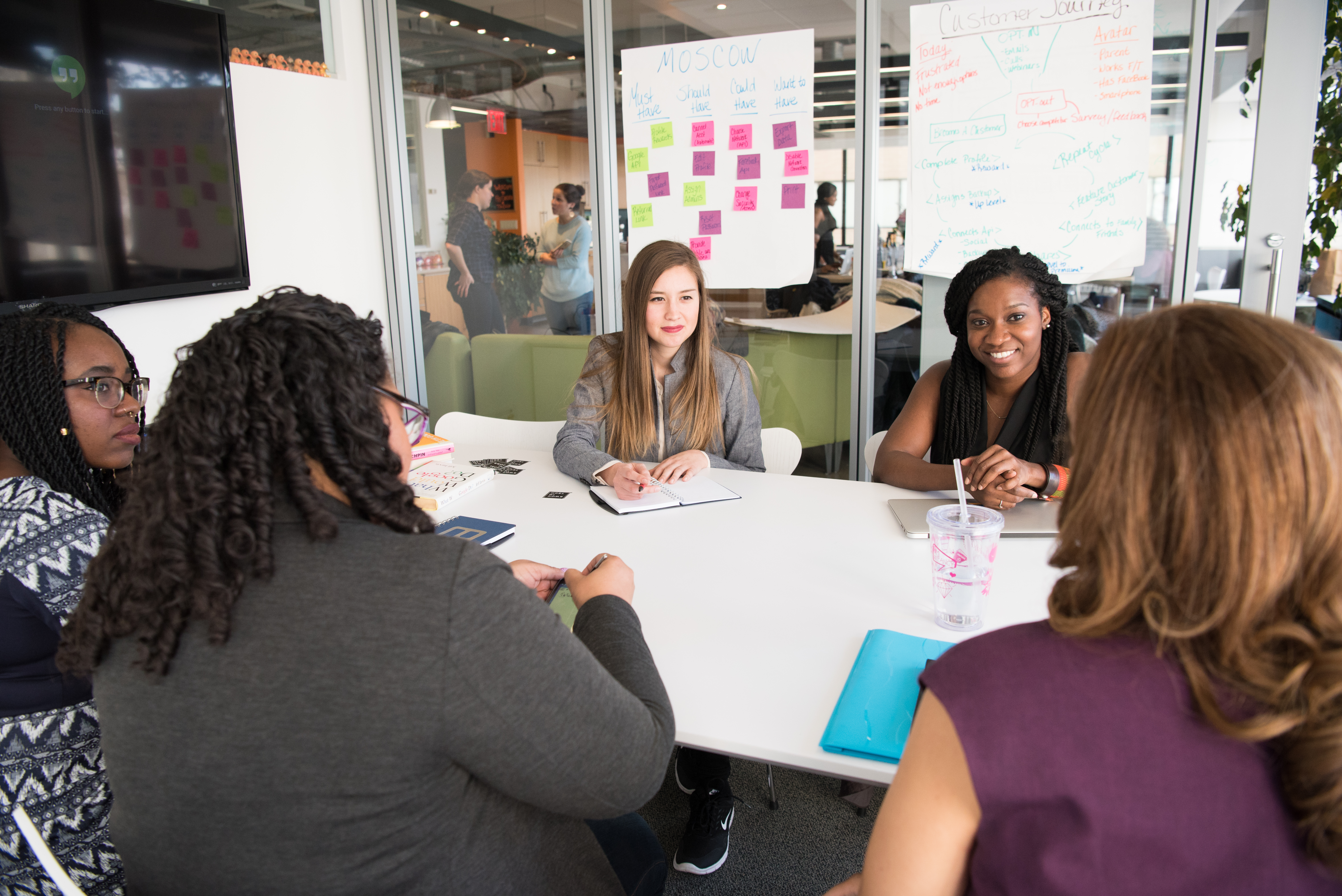March is Women’s History Month. In the last year, we’ve seen promising steps toward women’s representation and equity in the corporate context. In October 2018, California passed a law that requires publicly traded companies to have at least one woman on their board of directors. The #MeToo movement has garnered collective attention to sexual harassment in the workplace. And increasingly, the business world is attuned to the gender pay gap as well as celebrating the successes of female leaders.
Yet, these obstacles and challenges unique to the female workforce are still very real, and overcoming them is key to women’s mental health at work. Research shows that women who earn an income less than their male counterparts (matched across age, education, industry, and marital status) are are more than two times more likely to experience depression and 4 times more likely for anxiety. Negative stereotypes and perceptions of women in leadership have been related to symptoms of depression, social tension, and isolation in female leaders. Many women also face challenges as working mothers as well as detrimental effects of sexual harassment in the workplace, which happens to 80% of women. What’s more, women of color face structural challenges around equal pay and representation in leadership as well as social challenges regarding intersectional racism and sexism. Finally, among the transgender community, a historically underrepresented and under researched group, up to 90% of trans women have encountered some form of harassment on the job and face markedly higher rates of mental health conditions.
There’s still a lot of work to be done. Many women still come face-to-face with these social and structural barriers in the workplace where they spend most of their waking hours, and these challenges can lead to burnout and poor mental health. Having a company culture that is supportive of all women and their mental health is not only the right thing to do, but it gives companies a competitive advantage as well.
This month, we’re having a conversation with the women of Mind Share Partners to hear about their stories and perspectives around women, work, and mental health. In this article, we’ll hear from:
- Kelly Greenwood, Founder & CEO of Mind Share Partners
- Jen Anderson, Chief Operating Officer of Mind Share Partners
- Natasha Krol, Principal at Mind Share Partners
- Nina Tomaro, Marketing & Communications Consultant
Mind Share Partners is a nonprofit changing the culture of workplace mental health so that both employees and companies can thrive. www.mindsharepartners.org
Let’s kick it off with Kelly, Mind Share Partners’ Founder & CEO. As a female founder and entrepreneur, what was it like founding our organization? Were there specific challenges you faced or hesitations you had as a female founder & CEO?
Kelly: Prior to starting Mind Share Partners, I wanted to move the needle on workplace mental health and the related stigma due to my own experience managing anxiety in various work environments. After some research, I realized that to achieve my vision, I’d have to create a new organization given how little exists in this space. Being an entrepreneur had never been appealing, however, because of everything involved in starting something from scratch. I wasn’t intimidated by being outnumbered as a female founder thanks to beginning my career in male-dominated management consulting and then going to business school, where only about 30% of my class were women. I was used to being in the minority. Instead, I was concerned about how my generalized anxiety disorder would be perceived externally (ironic given our mission!). I’ve since overcome any hesitations I had thanks to my incredibly talented team—I definitely don’t feel like I’m in this alone.
I actually decided to start Mind Share Partners while I was on maternity leave with my second child, which many people find surprising. In my view, if you’re going to be a working parent, it’s ideal to be passionate about your job. But as an entrepreneur who’s also a mom, I do feel a sense of judgment at times that working dads just don’t run up against. I’m often hesitant to share that I have two small kids because of the negative stereotypes, particularly around my ability to juggle entrepreneurship and family. It frustrates me to no end that many men include their kids in bios to soften their images and use that as a net positive. Working parents should all be perceived as capable and committed, whether male or female. Here’s to smashing that stigma, too!

Read more about Kelly’s founding story.
Now, for the rest of the team, we all recognize that stories are powerful. What is your mental health story, and what has this looked like for you, particularly as accomplished, female professionals? How has your experience contributed to the work you do now at Mind Share Partners around workplace mental health?
Natasha: I struggled with anorexia and depression in high school and college. That experience is a challenging part of my story, but it’s also given me a deeper sense of purpose and resilience that I would not have access to otherwise. I have rarely shared that level of detail about myself and my mental health in professional environments before coming to Mind Share Partners.
As someone who has spent most of my education and professional life in male-dominated environments, I spent a lot of my career wary of anything that may make others perceive me as weak or somehow less than. Over time, I’ve realized that a powerful thing happens when I share my own story—often, people will share a story of their own, and the relief at being able to talk openly about their mental health is palpable.
People have different experiences and different desires for sharing their personal stories, but we need to make space to talk about mental health and to shift the conversation from “this makes me/people weak” to “this is a real, prevalent, normal part of humanity, and in fact gives me/others a particular empathy and strength.”
Jen: I experienced depression during a pregnancy, which also coincided with a series of intensely stressful work and personal situations. Because I was in a leadership position, I was able to create the flexibility I needed to manage through that difficult time. However, I didn’t disclose to anyone what I was experiencing, chalking up any days out of the office to pregnancy health. I felt like I needed to “keep face” as a leader, and was hesitant to show vulnerability. In addition, as I was working in a social justice organization, I didn’t feel like my challenges were worth mentioning compared with the experiences of our clients’ (and many of our team members’) life experiences.
Now, years later, I hope that my story can be helpful to other women. Looking back, I wish I had the words to speak about it as it was happening. Mental health challenges are almost universal—I wish I had used my experience with depression as an opportunity to build connections with others, rather than build up walls to protect myself. Of course, things are much more clear in retrospect—during my those difficult months, I just knew I was feeling badly and that I needed to get through it. Now, I hope I can continue to build those connections and help others do the same.
Nina: I remember starting my first job in marketing eight years ago with a goal of becoming the head of a marketing team in my future. I noticed that all of the leadership roles, including the one I wanted, were held by men. There were many times I was asked to run errands (like going to the dry cleaners). I was happy to work my way up in the company, but being asked to do these types of requests far outside of my job scope felt inherently wrong because my male counterparts in similar roles were never given similar tasks. I ended up leaving that company and started to take on more “masculine” characteristics. I ditched the sides of myself that were emotional and empathetic, which took away most of the joy in my work. I started finding respect amongst my male colleagues, and eventually found myself heading the communications for a major arts festival in the west coast, but at the cost of feeling numb and suffering from bouts of panic attacks on a weekly basis.
One day, I found myself in the head of marketing role, experiencing what should have been my biggest dream. But it didn’t feel that way. My coworkers felt I was placed in the role to “fill a quota,” and I was also experiencing sexual harassment by a male coworker of a similar leadership status in the company. I felt a mixture of embarrassment, fear, and frustration. I questioned myself, my own skills and abilities, and continued to silently suffer with the ongoing harassment—too afraid to speak up to lose everything I had worked so hard to achieve. I finally told my boss what was going on, and to my greatest fear, I was asked to leave soon after with the reason that “my productivity was declining”.
Now in my role at Mind Share Partners, I feel passionate and fulfilled sharing these often untold stories in this important conversation.

It’s well-documented that women face unique challenges and obstacles in the workplace that impacts their mental health. 1) What is one challenge that you have faced personally, and 2) what is one recommendation you would have to companies seeking to overcome these challenges to create a more equal and supportive work environment for women?
Jen: Because of my personal experience, I am an advocate for support for women during pregnancy, during recovery, and for parents broadly. Workplaces need to do more than just have access to benefits—we need to create an environment where mental health challenges are not shamed, but actively accepted; where pregnancy is not just accommodated, but supported; where families are not just an after-work activity, but the central focus of someone’s life. Creating opportunities for connection with other women (such as ERGs), educating all employees on empowering and human responses, allowing flexibility in hours and location—these things will open the door to people finding the treatment, social support, and situations they need to be mentally healthy at work.
Nina: With the #MeToo movement growing significantly in 2018, companies have been challenged to look at their internal processes to create a safe working environment for everyone. With my own experience of having to deal with sexual harassment in the workplace and the hardships it has on your mental health, I am passionate about addressing this conversation. One thing businesses can do is to provide resources such as ERGs or a 3rd party therapist or counselor that provide resources not attached to the company where you can feel safe in sharing your experience without it affecting your job. It’s important for a company to educate their employees on sexual harassment, and not just provide training to meet compliance. Address that this is something that is not tolerated in your company culture, and make sure you have leaders and managers that reflect a mentally healthy work culture.
What has it been like now working at a nonprofit startup with such a strong culture of supporting women?
Nina: I think to put it plainly, I’ve felt like I can bring my whole self to work at Mind Share Partners. I don’t have to play a role, or try to fit in particular social dynamics to be respected, I can just focus on the work and have my ideas and thoughts be heard. Working at an organization that actively supports businesses to create mentally healthy work cultures makes me feel less alone, and more empowered as I actively manage my ongoing anxiety and depression. I learned that many high performing individuals, of all genders and races, manage mental health conditions, and it allows me to feel less shame and deeper empowerment.
At Mind Share Partners, I do not feel weak for sharing my experience, but strong for being willing to lead with both experience and vulnerability and inspired by seeing those I work with leading through their stories and expertise as well.
Natasha: In my last role, I was working with social psychologists who specialize in stereotype threat, and it made me critically reflect on my own experiences in school and work. I realized that, while I had spent most of my education and career in male dominated environments, I had never really thought about the subtle ways in which various implicit and explicit signals had had an impact on my own sense of belonging and ability. That experience, and now the experience of working at Mind Share has made me acutely aware of the ways in which women (and other stereotyped groups) can suffer in less-than-supportive environments (even ones with good intentions).
At Mind Share, there is no single way of working or mold that I’ve felt expected to fit into. It’s been clear from the beginning that I am valued for the individual strengths and perspectives I can bring to the team—from hearing a team member specifically talk about how to ensure the culture was open to a new person rather than trying to fit someone into an existing culture, to explicit working styles conversations that range from brainstorming preferences to what hours you expect to work, to seeing the insights from these conversations effect how people then structure internal meetings and processes. It’s less about women specifically, and more about conversations and practices that demonstrate on a daily basis that Mind Share Partners is a place that consciously supports different ways of being.

At Mind Share Partners, we talk regularly about the role of leaders in culture change around workplace mental health.As all leaders yourselves, what is one way you try to create a culture that supports women’s mental health at work? What do you see in the future for women and mental health in the workplace setting?
Natasha: There are a lot of conversations about “flexibility in the workplace” that have originated from women trying to balance work and life, particularly with respect to children. There’s also a broader dialogue emerging about being human in the workplace. This can mean different ways of thinking and perspectives you bring to solve problems, different times of day that you’re able to do your best work given the other parts of your life or your mental health, different working styles—and these differences evolving over time based on where you are as a human being. In many cases, we’ve designed work in a way that doesn’t allow for different ways of being. I know very few people — not just women — for whom today’s predominant modes of working allow them to thrive as people and/or to do their best work.
We need to continue to redesign the way we work such that it not just allows for diverse experiences but that it is strengthened by them. This is both a moral imperative and good business sense.
Nina: There are many thoughts that come to mind for businesses that aspire to lead in the future of diversity and inclusion and mental health. For the intersection of women and mental health in particular, the company culture must embody diversity and inclusion at the heart of the brand, in both it’s messaging and its actions. For example, having women in leadership at all levels, listening to women perspectives and business insights, developing young women in the company to become leaders, changing beliefs around pregnancy and parenthood from being an “end to a woman’s career” to having a women return from pregnancy leave and achieve a promotion through her work and contribution. Of course, to achieve true gender equity, it’s important to normalize parental leave regardless of gender, including and acknowledging nonbinary and transgender individuals.
Internal workshops and training that talk about diversity and inclusion, mental health and the how it affects individuals in different ways communicates to employees this is something important to the culture. Actions, policies, and resources from these trainings tell employees the company is serious and supports them. All large social movements require time, and though many companies are making changes, time is needed to truly shift beliefs and stereotypes.
Kelly: It’s important to me to build a culture that supports everyone’s mental health—not just women’s mental health. Perhaps the most blatant thing I do is talk openly about my psychologist and psychiatrist appointments (and mark them on my calendar). That’s definitely a first for me, and one that’s obviously in keeping with our mission.
Given Mind Share Partners’ mission and our values, we also place a high premium on life outside of work. For some of us, that’s ensuring that we’re home in the evenings to be with our kids or making time for preschool events during the day. For others, that may be the ability to decompress after a busy day instead of the expectation of working into the night and sacrificing sleep. Flexibility around when and where we work has huge benefits for everyone. We have high expectations, but realize that people are more loyal and do their best work when you put them and what’s important to them first.
Ultimately, I want to treat my colleagues how I’d like to be treated. As a leader, I try my best to model healthy and sustainable behavior. What a lot of entrepreneurs get wrong is that this work is a marathon, not a sprint. I want all of us to stick around to see the finish line.


